Aussies fed up with hi-tech surveillance systems rolled out at supermarkets
Australia’s major supermarkets are rapidly expanding hi-tech surveillance inside stores, and shoppers aren’t happy about it.
Australia’s major supermarkets have been accused of treating customer like thieves by rapidly expanding hi-tech surveillance inside stores, new analysis claims.
As Woolworths and Coles face unprecedented scrutiny and grapple with mounting anger from shoppers, their growing security measures have been thrust under the spotlight again.
And a new survey reveals Australians have had enough.
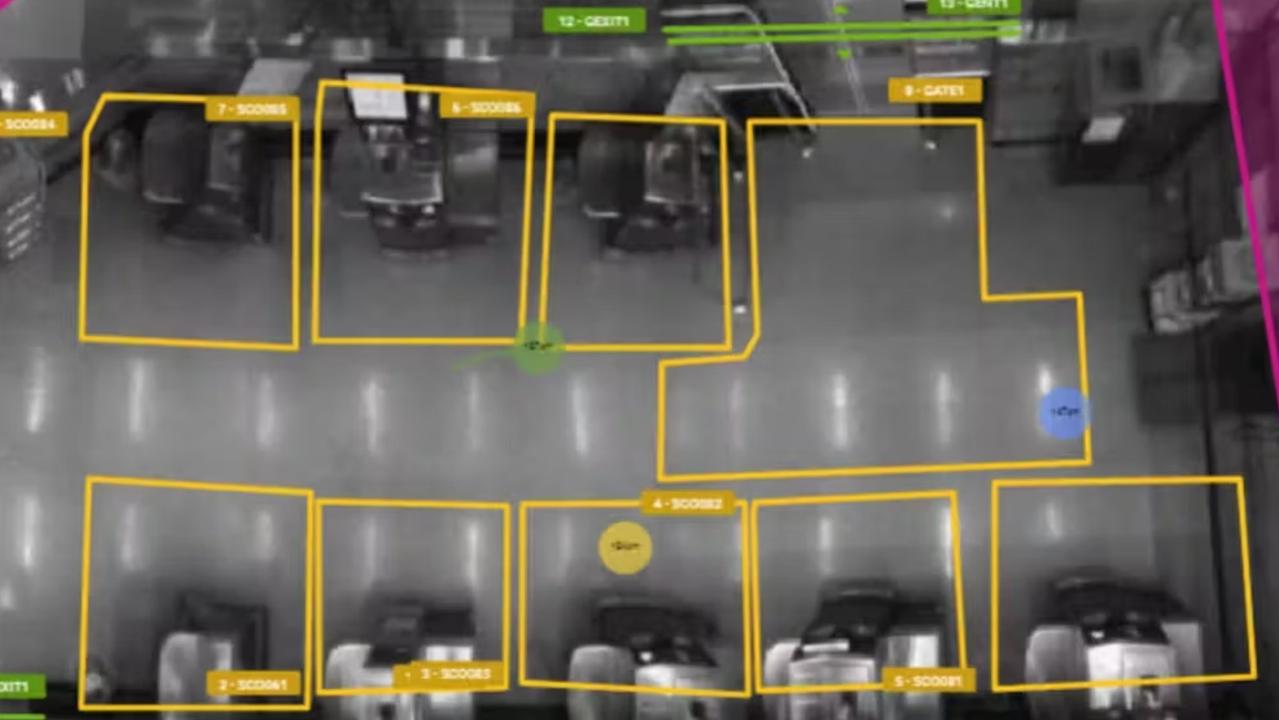
Lauren Kate Kelly is a PhD candidate in the Australian Research Council’s Centre of Excellence for Automated Decision-Making and Society at RMIT University, and conducted a deep dive into how the companies are watching shoppers and staff.
Over the past year, Ms Kelly said Woolies and Coles have rolled out “a growing hi-tech infrastructure of surveillance and control that pervades retail stores, warehouses, delivery systems and beyond”.
Customers left feeling like thieves
As the country’s biggest employers and crucial providers of household essentials, Woolies and Coles “play an outsized role” in everyday life, Ms Kelly said.
“Indeed, they are such familiar places that technological developments there may fly under the radar of public attention,” she wrote in analysis for The Conversation.
In a response to what both companies say is a rise in shoplifting, ceiling cameras that assign a digital ID to each shopper and track them as they move around the self check-out area have been rolled out.
Both have begun installing “smart” exit gates that prevent customers from leaving the self-serve checkout area until a purchase is verified.
“Some customers have reported being ‘trapped’ by the gate despite paying for their items, causing significant embarrassment,” Ms Kelly said.
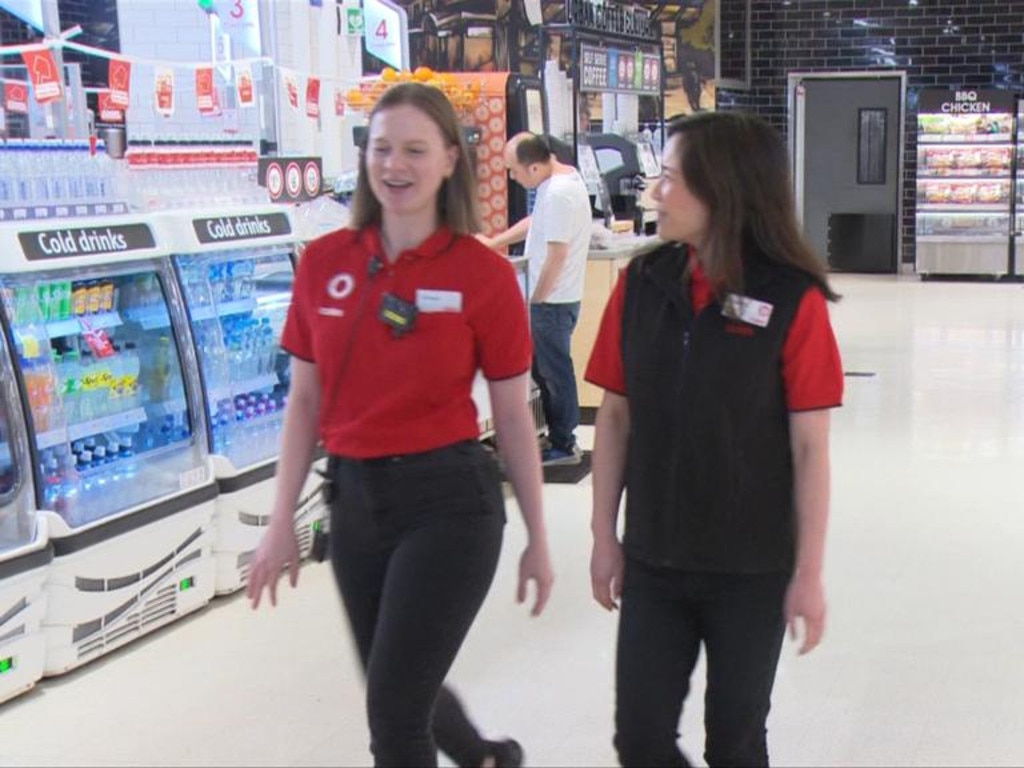
Privacy concerns have been raised about cameras that hover over self-serve checkout machines, capturing shoppers as they scan and bag products.
According to new research by financial comparison website finder.com.au, exclusively obtained by news.com.au, that particular form of surveillance hasn’t gone down well.
Almost one-in-four Aussies surveyed believe those cameras should be removed from self-serve check-outs, equating to about 4.5 million shoppers, finder.com.au found.
Amy Bradney-George, personal finance expert at the website, said many respondents felt “victimised” by the technology, which can incorrectly imply someone is a thief.
“These cameras track customers’ every move but sometimes don’t have a clear interpretation of events, raising unnecessary suspicion by nearby attendants,” Ms Bradney-George said.
“It’s made self-service shopping take considerably longer in some cases while customers are checked for potential thievery.”
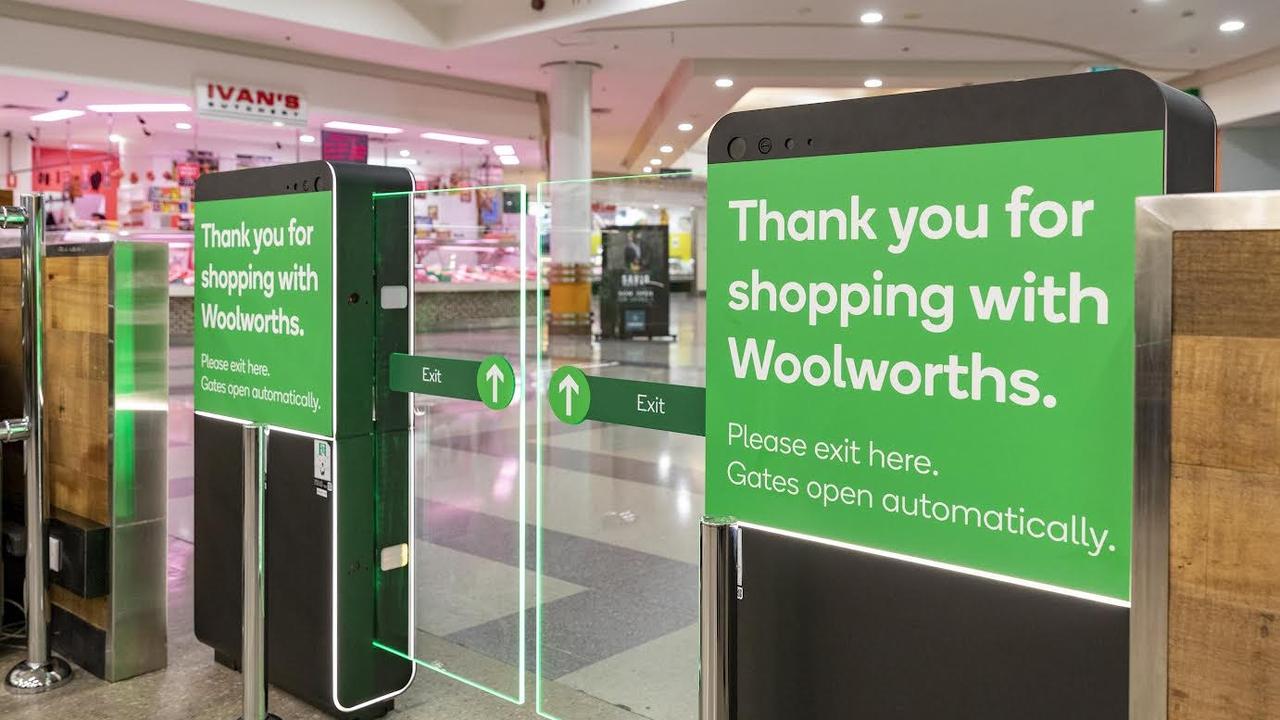
In a statement to news.com.au, a Coles spokesperson said: “While most of our customers do the right thing, unfortunately a small number don’t.
“The safety of our team members and customers is our top priority, and we have a range of security measures in place to reduce theft from our stores including security personnel and surveillance technologies such as CCTV.
“Some of our cameras, such as the ones that display a live feed of the customer on their self-service screen as the complete their shop, do not record or collect personal information. Any CCTV footage that is recorded, is done so in line with all relevant laws and Coles’ Privacy Policy.
“Like most businesses and public spaces, we use surveillance technologies in accordance with stringent privacy laws, and we have strict protocols in place around access to the footage.”
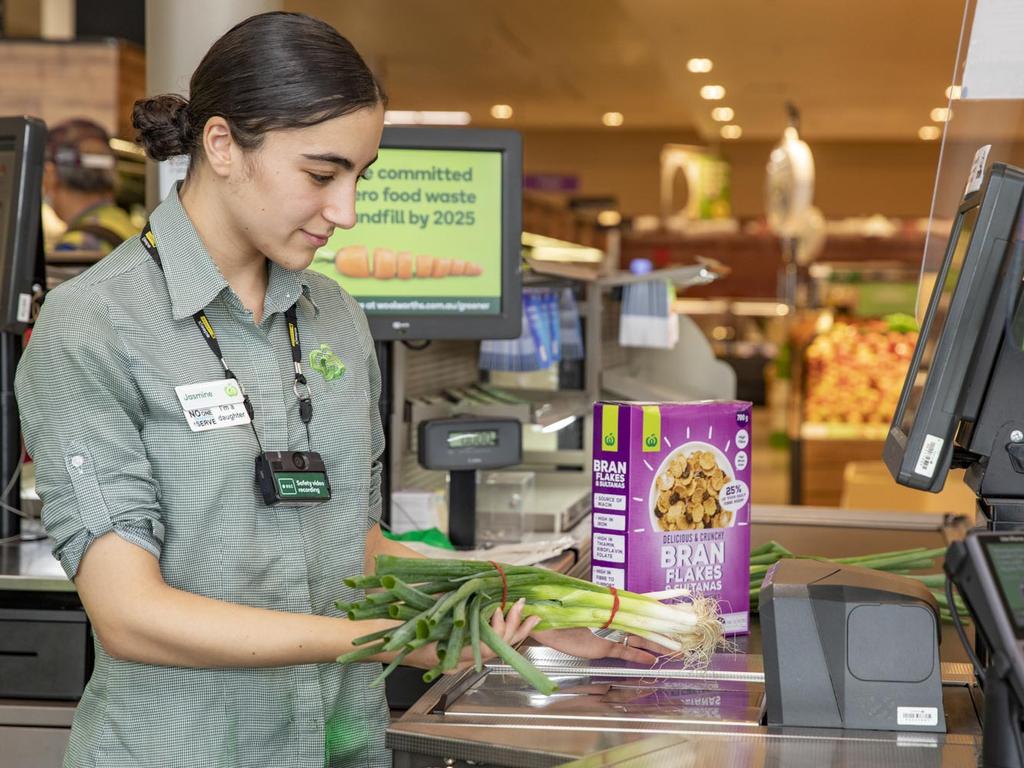
In a statement, a Woolworths spokesperson said: “We have a number of initiatives that we use, both covert and overt, to help reduce retail crime which currently mirrors a level that we experienced prior to the Covid-19 pandemic.
“These initiatives include the use of camera technology at the check-outs, double welcome gates, CCTV and a trial of gates at the exit to our self-serve checkout area.
“The majority of our customers do the right thing and we thank them for doing so.
“We also continue reviewing our health and safety controls to ensure we’re doing everything we can to keep our team and customers safe in our stores, and this remains our absolute priority.
“We use technology such as team safety cameras and VR Training modules to both support and prepare our team members for instances where they may feel unsafe.”
‘More pictures of me than my parents’
At least one Woolies store has installed 500 miniature cameras on product shelves to keep watch of stock levels. It’s part of a trial of broader measures to improve efficiencies, Woolies said.
“The cameras monitor real-time stock levels, and Woolworths says customers captured in photos will be silhouetted for privacy,” Ms Kelly said.
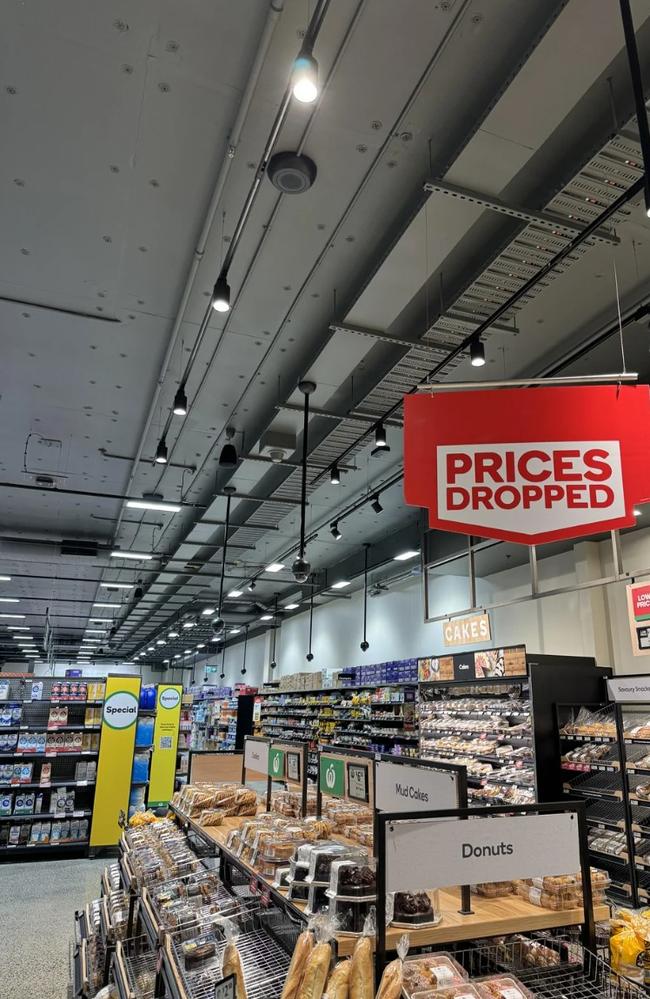
Meanwhile, a shocked shopper took to Reddit recently to share an image of “at least 10 cameras” in the bakery section of one Woolies store.
“Woolies might have more pictures of me than my parents,” the poster wrote alongside the image.
Another measure raising privacy concerns is the move to fit some workers with body worn cameras with alarms.
“Such measures may protect against customer aggression, which is a serious problem facing workers,” Ms Kelly noted.
But she said “biometric data collected this way could also be used to discipline staff in what scholars Karen Levy and Solon Barocas refer to as ‘refractive surveillance’ – a process whereby surveillance measures intended for one group can also impact another.”
When the devices were announced, Katrina Michael from the University of Wollongong’s School of Computer and Information Technology told The New Daily that shoppers were right to worry.
“What we’re going to see is shoppers engaging in private acts and actions in public space being surveilled by accident, for example when they are talking to their children or having an intimate conversation with their loved ones,” Ms Kelly told the outlet.
“That is a grey area for the law. We can definitely record in the public space, you can definitely record in the business, but when you have mobile surveillance cameras on humans, it creates a different dynamic and social implications.”
Data company deals
Woolies and Coles have both struck deals with a New Zealand start-up called Auror, named after the magic police from the Harry Potter series.
Using data from CCTV and other sources related to individuals who have shoplifting – like gender, distinguishing features, age and build – the software can notify stores when suspects come back, in a bid to prevent crimes from happening.
In addition, Coles recently raised eyebrows by entering into a partnership with global data surveillance firm Palantir, which counts among its clients the US Central Intelligence Agency and the Pentagon.
Experts warn the arrangement with Palantir could lead to job losses and vast cost-cutting, as the company seeks to save $1 billion in operating expenses over the next four years.
More than 10 billion rows of data, including in-depth insights into Coles’ 840 supermarkets, 120,000 employees, 9000 suppliers and $41 billion in revenue, will be ingested into a system called Foundry.
Then, by intricately examining “each store, team member, shift and allocation across all intervals in a day, every day”, Coles can begin to “redefine” how it thinks about its vast workforce, a press release issued in the US last week reveals.
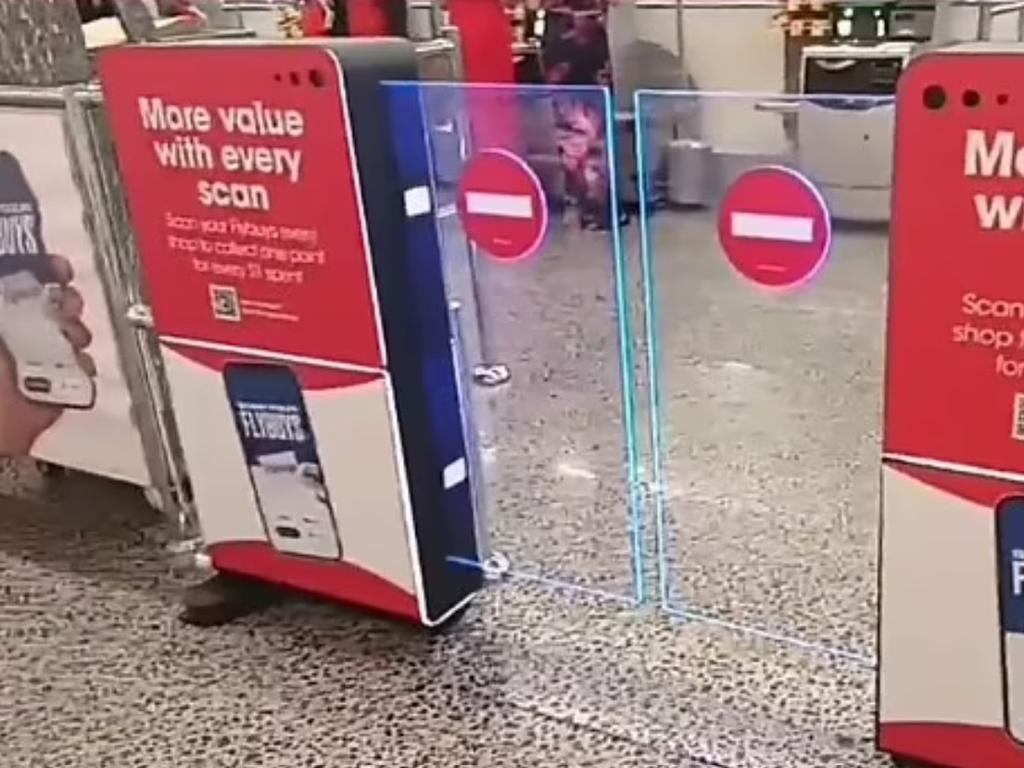
Professor Uri Gal from The University of Sydney’s Business School said the framing of the partnership raises question about how Coles views its workforce.
“There are various implications, like whether they view their workers as fully fledged humans with their own needs and interests, or primarily as numbered resources to extract the most possible value from.”
While it might not be a household name in Australia, Palantir is no stranger to controversial headlines in the US and Europe thanks to its dealings with militaries and spy agencies.
“This company has had a checkered past, one could say,” Prof Gal said. “Their technology has been put to use in various ways, some more ethically questionable than others.
“Of all the data companies Coles could partner with, Palantir has possibly the worst reputation.”
The Palantir deal is part of efforts by Coles to trim $1 billion from its operating costs over the next four years.
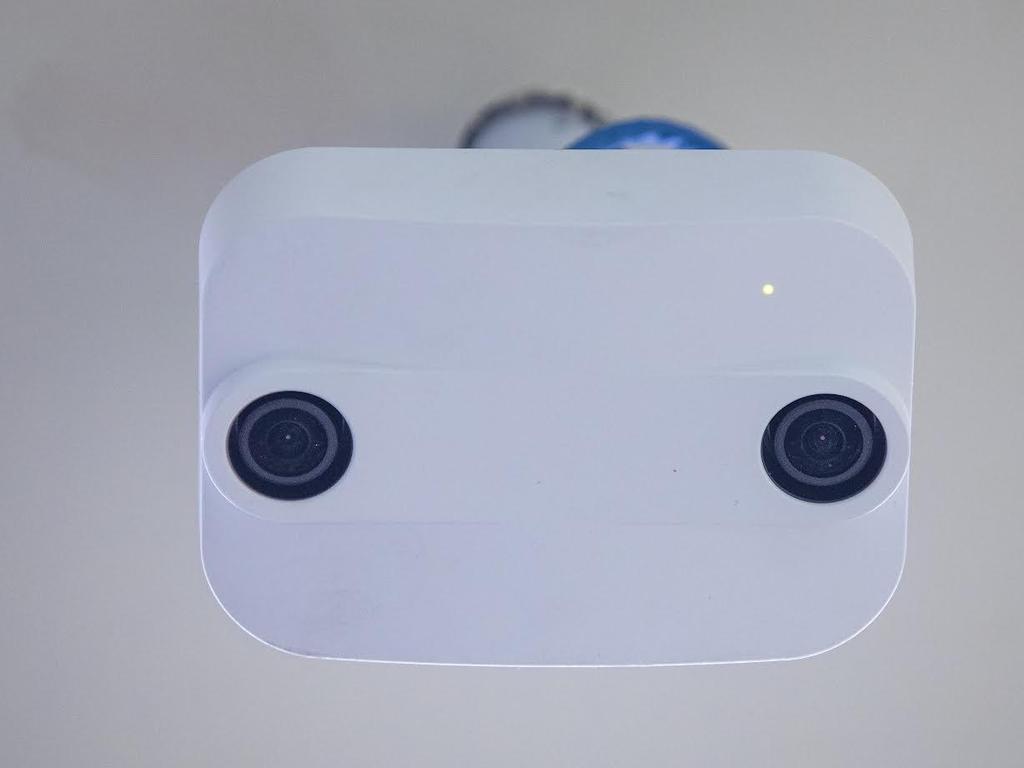
Security gone mad
Households spend on average $160 per week on groceries, according to a recent survey of shoppers by Canstar Blue.
“This equates to almost $693 a month or $8320 a year,” Dean Heckscher from Canstar said.
“The average weekly spend for larger households of five or more people is roughly $204, with the majority of this spent on staple or everyday food items.”
Given how much is being put through registers at Woolies and Coles each day, Ms Bradney-George believes Aussies deserve better than “security gone mad”.
“With food prices rising significantly over the past year, it’s no secret that some households are struggling to afford to put food on the table.
“But for most of these people, their greatest crime is forgetting to scan their 15c bag or scanning a granny smith instead of a pink lady.”

Those who are uncomfortable about the tracking and surveillance systems should use a staffed checkout – or vote with their feet, she said.
“Or shop in small local grocery stores that generally don’t come with airport-grade security,” she said.
“That means you might miss out on supermarket loyalty programs, however, which 83 per cent of Aussie shoppers participate in.”
Ms Kelly said security measures employed by Woolies and Coles deserve the same scrutiny by the public and governments as allegations of price gouging.
“Viewed as a whole, Coles’ and Woolworths’ hi-tech measures paint a picture of surveillance and control that exerts pressures on both customers and workers,” she said.




